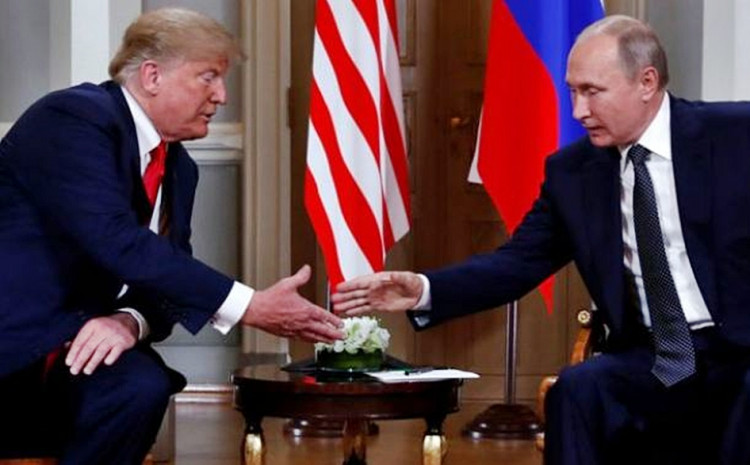The Kremlin has confirmed claims from journalist Bob Woodward's upcoming book that former President Donald Trump secretly sent COVID-19 testing devices to Russian President Vladimir Putin during the height of the pandemic. Kremlin spokesperson Dmitry Peskov acknowledged the delivery of the devices but denied allegations that the two leaders have been in frequent communication since Trump left office.
Woodward's book, titled "War," alleges that Trump sent Abbott COVID-19 testing devices to Putin at the Russian leader's request, a gesture that was kept quiet due to Putin's concerns over possible backlash. Peskov responded to these claims, stating, "We also sent equipment at the beginning of the pandemic," but emphasized that reports of phone conversations between Trump and Putin after he left office were "not true."
The confirmation of Trump's actions has sparked reactions across the political spectrum, with critics questioning the former president's motives and his continued relationship with authoritarian leaders. Vice President Kamala Harris, during an interview with Howard Stern, accused Trump of aiding an adversary at a critical time when the U.S. itself was in desperate need of medical resources. "This person who wants to be president again, who secretly is helping out an adversary while the American people are dying by the hundreds every day," Harris remarked.
Trump's campaign has vehemently denied the claims made in Woodward's book. Steven Cheung, Trump's communications director, dismissed the allegations as "made up stories by a truly demented and deranged man who suffers from Trump Derangement Syndrome." Trump himself was equally dismissive of the accusations, describing Woodward as a "storyteller" who has "lost his marbles."
The revelation adds to a long history of controversy surrounding Trump's ties to Putin, dating back to his first presidential campaign in 2016. Trump has often praised Putin as a "savvy" leader and has expressed admiration for his authoritarian style. This cozy relationship has led many of Trump's critics to question his motives and his potential willingness to align with the interests of foreign adversaries over those of the United States.
Woodward's book also claims that Trump and Putin have had multiple phone calls since Trump's departure from the White House, a detail both the Kremlin and Trump's team have denied. According to Woodward, Trump asked an aide to leave his office at Mar-a-Lago in early 2024 so he could speak privately with Putin. Jason Miller, a senior Trump adviser, told Woodward that he was "not aware" of any such conversations, though he noted, "I'm sure they'd know how to get in touch with each other."
The allegations of secret communications and the transfer of COVID-19 testing devices come at a politically sensitive time as Trump campaigns for another term in the White House. His stance on Russia and his criticism of U.S. support for Ukraine have led to speculation about how he would handle ongoing geopolitical issues if re-elected. Trump has repeatedly claimed that he could end the war between Russia and Ukraine "in one day" if given the chance, though he has offered few details on how he would achieve that outcome.
The Kremlin's confirmation of Trump's aid to Russia during the pandemic has raised concerns about his motivations. "The fact that he secretly sent COVID test kits for Putin's personal use, while Americans were struggling to get tested, paints a stark picture of where his priorities lay," said an anonymous senior U.S. official.
President Joe Biden weighed in on the matter during a recent event in Pennsylvania, highlighting the significance of the report. "You see what came out today?" Biden said at a fundraiser. "So he calls his good friend Putin - not a joke - and makes sure he had the tests. He had the tests."
Peskov's comments also shed light on Russia's broader strategy during the pandemic. He noted that "many countries were exchanging equipment" at the onset of COVID-19, and that Russia had sent ventilators to various nations in need. He downplayed the secrecy of Trump's actions, suggesting that such exchanges were standard at the time.
Woodward's new book, which is set for release on October 15, dives deeper into Trump's interactions with foreign leaders, including his conversations with Putin. It also explores President Biden's private remarks about various international figures, adding another layer of intrigue to the dynamic of U.S. foreign relations during the Trump administration.






